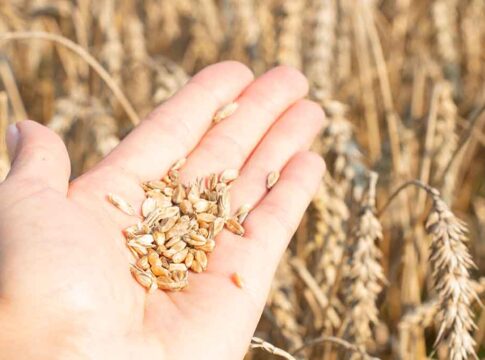Amid Russia’s military aggression against Ukraine’s Black Sea ports, the global food supply chain is now under threat. Russian attacks have increased delays in grain shipments and aid deliveries. Vulnerable populations in Africa, Asia, and the Middle East advocate for peace.
Increased Attacks on Ukrainian Ports
Russian military actions have intensified, notably targeting Ukrainian Black Sea ports, causing significant disruptions. Since September 1, reports indicate damages to multiple civilian vessels and essential grain facilities. Such hostilities are escalating tensions, spotlighted by the delayed grain shipment onboard the MV SHUI SPIRIT, originally slated for regions like Palestine and Egypt.
The repercussions extend beyond immediate physical damage. The attacks collide head-on with the agricultural calendar, exacerbating the disruption during Ukraine’s critical harvest season. Industries and livelihoods reliant on these grains face uncertainty, pushing global market dynamics into potential chaos.
UK Warns Russia's Black Sea Port Attacks Put Global Food Security at Risk https://t.co/lPdCe6btta
— gCaptain (@gCaptain) October 23, 2024
International Outcry and Calls for Action
The international community, spearheaded by the UK, voices strong condemnation against Russia’s defiance of global agreements. British Prime Minister Keir Starmer criticizes the aggression, highlighting the broader implications for global food security. The Prime Minister noted, “The Prime Minister said that these attacks impact millions of vulnerable people in Africa, Asia, and the Middle East.”
Moreover, strategic concerns arise as Russia allegedly courts support from North Korea. Such alliances threaten to widen geopolitical rifts, demanding robust responses from international governing bodies. These recent developments force international leaders to question existing frameworks and their effectiveness in curbing such hostilities.
Implications for Global Food Security
The progression of these attacks directly correlates with mounting global concerns, particularly for nations relying heavily on Ukrainian cereal exports. Nations across Africa, Asia, and the Middle East, which depend on a stable supply of wheat and corn, brace for potential shortages. As a response measure, Ukraine initiated a new Black Sea corridor following the collapse of a previous UN-backed initiative.
“Russian attacks on Ukrainian Black Sea ports have increased rapidly, causing severe delays in delivering crucial aid to Palestinians and grain supplies to the Global South,” said British Prime Minister Keir Starmer.
As diplomatic endeavors continue, the exact roadmap to resolving these tensions remains complex. The global market looks towards collaborative actions to bridge gaps and assure food security larger than isolated incidents. Meanwhile, the world watches closely, hoping for an imminent de-escalation and humanitarian reprieve.



Ukraine has been a Russian obsession dating back centuries because of their natural resources and year-round open ports on the Black Sea. Geography has always been a problem for Russia because a good portion of it’s land mass is located above the Arctic Circle with limited cropland and iced-in ports during the winter months. Ukraine’s geography provides abundant agricultural lands and ice-free ports for commerce. In the 20th century, the discovery of oil in Ukraine made it even more valuable and desirable for a Russian takeover. Controlling Ukraine’s resources was the major factor in Putin’s invasion.